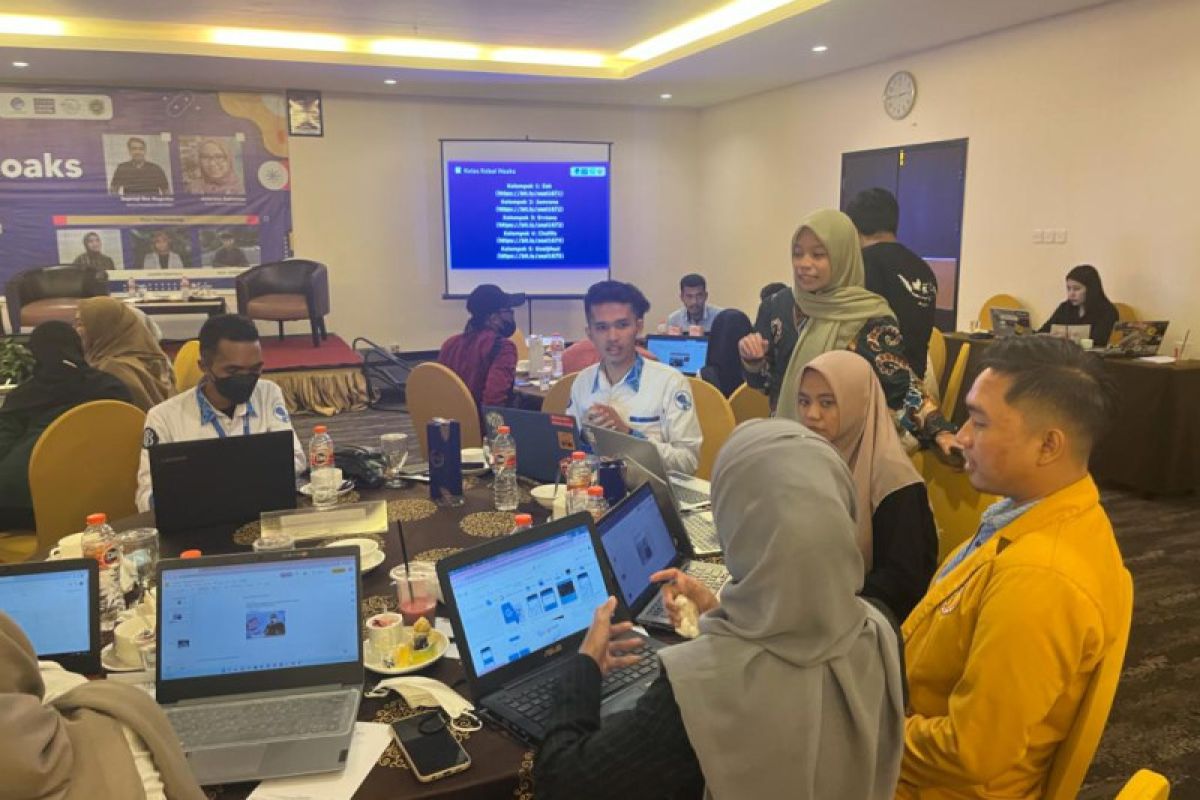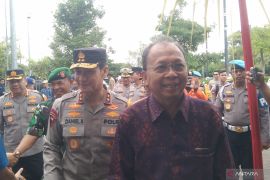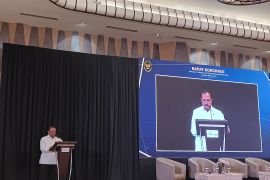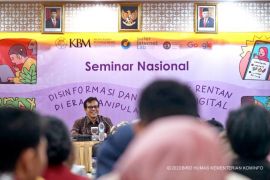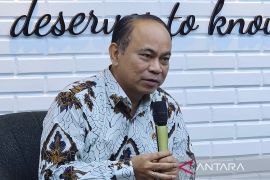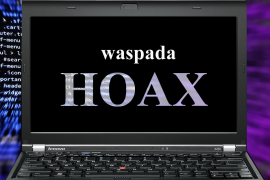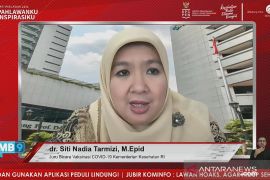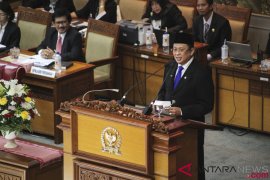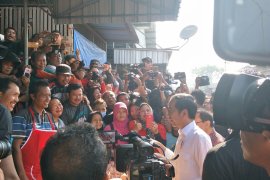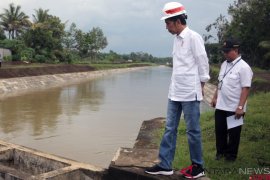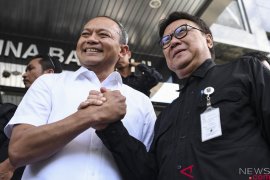It must be acknowledged that high utilization of the internet in Indonesia carries various risks, the Ministry's Informatics Application Director General Samuel Abrijani Pangerapan noted through a statement on Tuesday.
These risks include online fraud, hoaxes, cyberbullying, and other negative contents, he affirmed.
To this end, the rising use of technology should be followed by adequate digital literacy capacity, so that the people can use digital technology in a productive, smart, and accurate manner, he remarked.
According to the Indonesian National Digital Literacy Index Survey undertaken by the ministry and Katadata Insight Center in 2021, Indonesia is currently placed in the "medium" digital literacy category, with an index value of 3.49 in the range of 1 to 5.
The result of the hoax-related survey conducted by the two institutions also shows that there are still people, who spread hoaxes.
In the survey, some 11.9 percent of the respondents admitted to having spread hoaxes in 2021. This figure increased by 11.2 percent from 2020.
Hence, a digital literacy class was held in Kendari, Southeast Sulawesi, with participants comprising several communities and universities in the region.
The program aims to develop the people's critical thinking capability to the information that they receive to realize Indonesia #MakinCakapDigital (More Digital Fluent).
The hoax immunity class was held to educate people on the definition of hoax as well as simple categorization and instruments that can be used to verify the facts of an information.
MAFINDO Presidium Head Septiaji Eko Nugroho emphasized the need for people to learn how to differentiate facts from hoaxes.
"This social audit is a method to figure out whether the profile or content that we see on social media is a fact or hoax," he explained.
"We need to have the skills, need to have the capability to carryout independent fact-checking, to know whether there is an edit in the video or photo content," he stressed.
Related news: National Library appoints Sleman District Head as Madam Literacy
Related news: Civil servants contribute significantly to digital transformation
Translator: Indriani, Fadhli Ruhman
Editor: Rahmad Nasution
Copyright © ANTARA 2022
